Related Research Articles
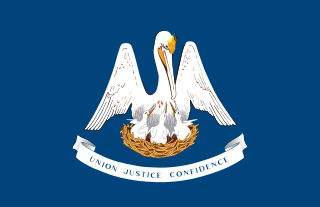
Louisiana is a state in the Deep South and South Central regions of the United States. It borders Texas to the west, Arkansas to the north, and Mississippi to the east. Of the 50 U.S. states, it ranks 20th in land area and the 25th in population, with roughly 4.6 million residents. Reflecting its French heritage, Louisiana is the only U.S. state with political subdivisions termed parishes, which are equivalent to counties, making it one of only two U.S. states not subdivided into counties. Baton Rouge is the state's capital, and New Orleans, a French Louisiana region, is its largest city with a population of about 383,000 people. Louisiana has a coastline with the Gulf of Mexico to the south; a large part of its eastern boundary is demarcated by the Mississippi River.
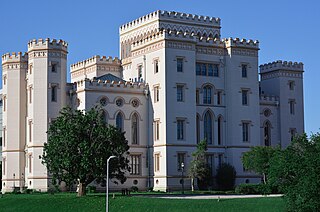
Baton Rouge is the capital city of the U.S. state of Louisiana. Located on the eastern bank of the Mississippi River, it had a population of 227,470 as of 2020; it is the seat of Louisiana's most populous parish (county-equivalent), East Baton Rouge Parish, and the center of Louisiana's second-largest metropolitan area and city, Greater Baton Rouge.
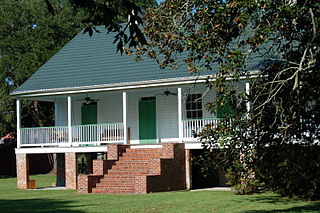
West Baton Rouge Parish is one of the sixty-four parishes in the U.S. state of Louisiana. Established in 1807, its parish seat is Port Allen. With a 2020 census population of 27,199 residents, West Baton Rouge Parish is part of the Baton Rouge metropolitan statistical area.

Pointe Coupee Parish is a parish located in the U.S. state of Louisiana. As of the 2020 census, the population was 20,758. The parish seat is New Roads.

East Baton Rouge Parish is the most populous parish in the U.S. state of Louisiana. Its population was 456,781 at the 2020 census. The parish seat is Baton Rouge, Louisiana's state capital. East Baton Rouge Parish is located within the Greater Baton Rouge area.

Vietnamese Americans are Americans of Vietnamese ancestry. They comprise approximately half of all overseas Vietnamese and are the fourth-largest Asian American ethnic group following Chinese Americans, Indian Americans, and Filipino Americans. There are approximately 2.3 million people of Vietnamese descent residing in the U.S. as of 2023.

Acadiana, also known as the Cajun Country, is the official name given to the French Louisiana region that has historically contained much of the state's Francophone population.

The Florida Parishes, on the east side of the Mississippi River—an area also known as the Northshore or Northlake region—are eight parishes in the southeastern portion of the U.S. state of Louisiana.

The Diocese of Baton Rouge, is a Latin Church ecclesiastical territory or diocese in the Florida Parishes region of the U.S. state of Louisiana. It is a suffragan in the ecclesiastical province of the Metropolitan Archdiocese of New Orleans. The current bishop is Michael Duca.
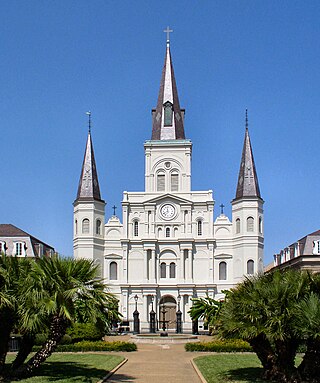
The Archdiocese of New Orleans is a Latin Church ecclesiastical division of the Catholic Church spanning Jefferson, Orleans, Plaquemines, St. Bernard, St. Charles, St. John the Baptist, St. Tammany, and Washington civil parishes of southeastern Louisiana. It is the second to the Archdiocese of Baltimore in age among the present dioceses in the United States, having been elevated to the rank of diocese on April 25, 1793, during Spanish colonial rule.
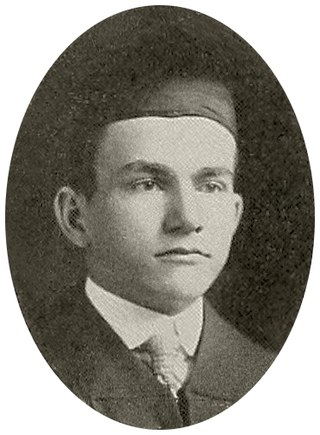
Leander Henry Perez Sr. was an American Democratic Party political boss of Plaquemines and St. Bernard parishes in southeastern Louisiana during the middle third of the 20th century. Officially, he served as a district judge, later as district attorney, and as president of the Plaquemines Parish Commission Council. He was known for leading efforts to enforce and preserve segregation.

Louisiana Creoles are a Louisiana French ethnic group descended from the inhabitants of colonial Louisiana before it became a part of the United States during the period of both French and Spanish rule. They share cultural ties such as the traditional use of the French, Spanish, and Creole languages and predominant practice of Catholicism.
The Institute Catholique, also known as L'Institut Catholique des orphelins indigents and the Couvent School, was a Catholic school founded in New Orleans in 1840. It mainly served the non-orphan children of free people of color, who paid a modest tuition, and was founded with funds from Marie Couvent.
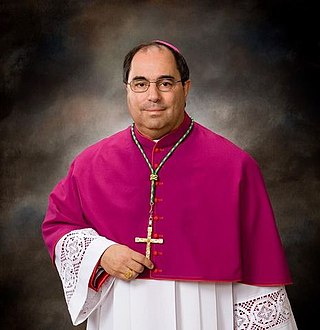
Michael Gerard Duca is an American prelate of the Roman Catholic Church who has been serving as bishop of the Diocese of Baton Rouge in Louisiana since his installation on August 24, 2018. He previously served as the bishop of the Diocese of Shreveport in Louisiana from 2008 to 2018.

Louisiana is a South Central U.S. state, with a 2020 U.S. census resident population of 4,657,757, and apportioned population of 4,661,468. Much of the state's population is concentrated in southern Louisiana in the Greater New Orleans, Florida Parishes, and Acadiana regions, with the remainder in North and Central Louisiana's major metropolitan areas. The center of population of Louisiana is located in Pointe Coupee Parish, in the city of New Roads.

Robert William Muench is an American prelate of the Roman Catholic Church. Muench served as bishop of the Diocese of Baton Rouge in Louisiana from 2002 to 2018. He previously served as bishop of the Diocese of Covington in Kentucky from 1996 to 2002 and as an auxiliary bishop of the Archdiocese of New Orleans in Louisiana from 1990 to 1996.
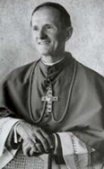
Stanley Joseph Ott, S.T.D., was an American prelate of the Roman Catholic Church. He served as Bishop of Baton Rouge from 1983 until his death in 1992. He previously served as an auxiliary bishop of the Archdiocese of New Orleans from 1976 to1983.
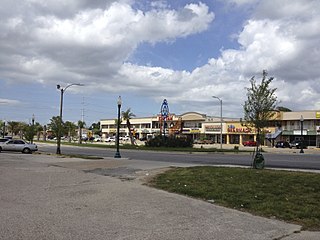
As of 2012 Greater New Orleans has over 14,000 Vietnamese Americans and other people of Vietnamese origins.

Louisiana French is an umbrella term for the dialects and varieties of the French language spoken traditionally by French Louisianians in colonial Lower Louisiana. As of today Louisiana French is primarily used in the state of Louisiana, specifically in its southern parishes.
St. George is the newest incorporated city in Louisiana. It was approved in a ballot initiative on October 12, 2019. Upon incorporation, it became the fifth largest city in Louisiana and the second largest in East Baton Rouge Parish with a population of 86,316. The city originated from a previously unincorporated area of East Baton Rouge Parish located southeast of the City of Baton Rouge.
References
- ↑ "2020 State Factsheet Louisiana" (PDF). Asian and Pacific Islander American Vote. 2024-06-18.
- ↑ "History of Vietnamese immigration to New Orleans". Clarion Herald. July 1, 2014.
- ↑ Stauffer, S. M. (2016). From Saigon to Baton Rouge: East Baton Rouge Parish Library and Vietnamese Refugees, 1975-1985. IFLA WLIC 2016 – Columbus, OH – Connections. Collaboration. Community Conference Proceedings. Retrieved from https://repository.lsu.edu/slis_pubs/26
- ↑ Rutledge, Paul (1992). The Vietnamese experience in America. Internet Archive. Bloomington : Indiana University Press. p. 39. ISBN 978-0-253-34997-2.
- 1 2 3 "Vietnamese". 64 Parishes. Retrieved 2024-06-18.
- ↑ "Disastrous Displacements: Vietnamese Americans in New Orleans East". www.historians.org. Retrieved 2024-06-18.
- ↑ Hiltner, Stephen (2018-05-05). "Vietnamese Forged a Community in New Orleans. Now It May Be Fading". The New York Times. ISSN 0362-4331 . Retrieved 2024-06-18.
- ↑ "Preserving Vietnamese Culture and Language in Southern Louisiana: Altars as Symbols of Identity". www.louisianafolklife.org. Retrieved 2024-06-24.